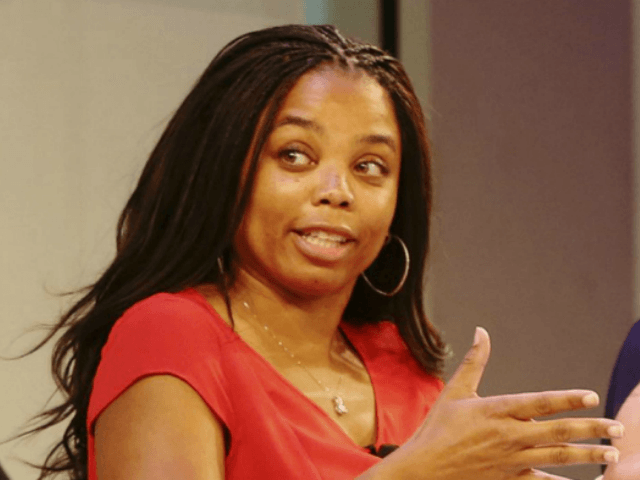ESPN host Jemele Hill is now advocating for Adidas to give Colin Kaepernick an endorsement deal, regardless of whether an NFL team signs him for the 2018 season.
In an April 20 op-ed, Hill insisted giving the former San Francisco 49er a deal would “reassure” blacks and also hinted that she feels blacks have “no voice” in American culture.
Hill began by mentioning a film created by Adidas featuring a group of minorities deemed “influencers.” The film featured personages such as singer Pharrell Williams and others, but Hill noted that Colin Kaepernick was not part of the group Adidas picked. This, she felt was a mistake.
Hill went on to recall that Mark King, the president of Adidas North America division, recently said that his company was ready to offer the inventor of the national anthem protests an endorsement contract, but only if he is signed by a team first.
The ESPN host scolded Adidas for the seemingly hollow offer.
“So why wait on NFL teams, who, so far, have shown practically no interest in signing Kaepernick?” Hill wrote.
“The boldest statement Adidas could make is to sign Kaepernick now. Forget about the NFL, since it seems doubtful that Kaepernick will ever play again,” Hill added.
Hill noted that the Adidas film said it wanted to help people “who are obsessed with progress.”
“Hmm. That sounds exactly like Kaepernick,” Hill said, “who began his protest because he was disgusted by the lack of justice when unarmed black people are killed by police, and this country’s continued embrace of institutional racism:”
Amid all the noise that surrounds Kaepernick, it’s often forgotten that while there are plenty of people who sadly view Kaepernick as a villain, there’s an equally large number of people who support him and are inspired by his dedication to social justice. And many of those people would love to buy Adidas products as a way to continue their support.
The ESPN host then went on to hint that black people need to be “reassured” and may lack a “voice” in American culture.
“Now more than ever, black people need to be reassured that there is a genuine appetite for black voices, and not just a superficial need for black faces,” Hill wrote.
Perhaps realizing that she may be thought of as “commercializing” Kaepernick with the Adidas connection, Hill tried to beat down the “evil capitalist” claim:
I’m not trying to commercialize Kaepernick’s beliefs — we’ve seen how dangerous that can be with the way Martin Luther King Jr.’s message has been perverted and spun over the years — but imagine the impact if people of color saw that not all corporations are scared to show open support of black folks who discuss issues that might make some of their consumers uncomfortable.
Kanye West is brash, outspoken and polarizing, and his personality was key in resurrecting Adidas. He and Kaep on the same team seems ideal.
One problem with the Adidas offer is that Nike still has Kaepernick under contract. So, the Adidas offer seems doubly hollow. But Hill went on to say that this is all still an example of how blacks are marginalized:
Unfortunately, there are countless examples of vocal black athletes being ostracized and losing everything — jobs, income, or worse, their dignity — as soon as they start speaking truths that hit a little too close to home. And shamefully, the majority of them are only remembered fondly after it’s proven they were on the right side of history.
But during this time especially, it’s important that black people are reassured they matter to the people who can write the biggest checks. We have black men being hauled out of Starbucks by police for minding their business, a Syracuse fraternity suspended after recording racist videos, and a viral video that shows two black servicewomen being verbally and physically attacked by a white woman after a dispute over a parking space — and that’s just in the last few days. The threat and vulnerability people of color feel right now is real. And if companies want to show sincere respect for their black customers, that means doing more than just using black folks’ talents to peddle more products to black audiences. If you want black dollars, maybe try being invested in black issues.
Hill concluded by saying that “most people of color” are confronted with police brutality all too often, and “don’t have the luxury of picking and choosing when race matters, because for us, it matters all the time.”
The ESPN host took one last jab at Adidas with her closing paragraph:
Adidas didn’t change its fortunes by being safe, so why not continue to be bold? Because as Pusha T said in Calling All Creators, sometimes, “it’s about making a statement.”
Follow Warner Todd Huston on Twitter @warnerthuston.

COMMENTS
Please let us know if you're having issues with commenting.